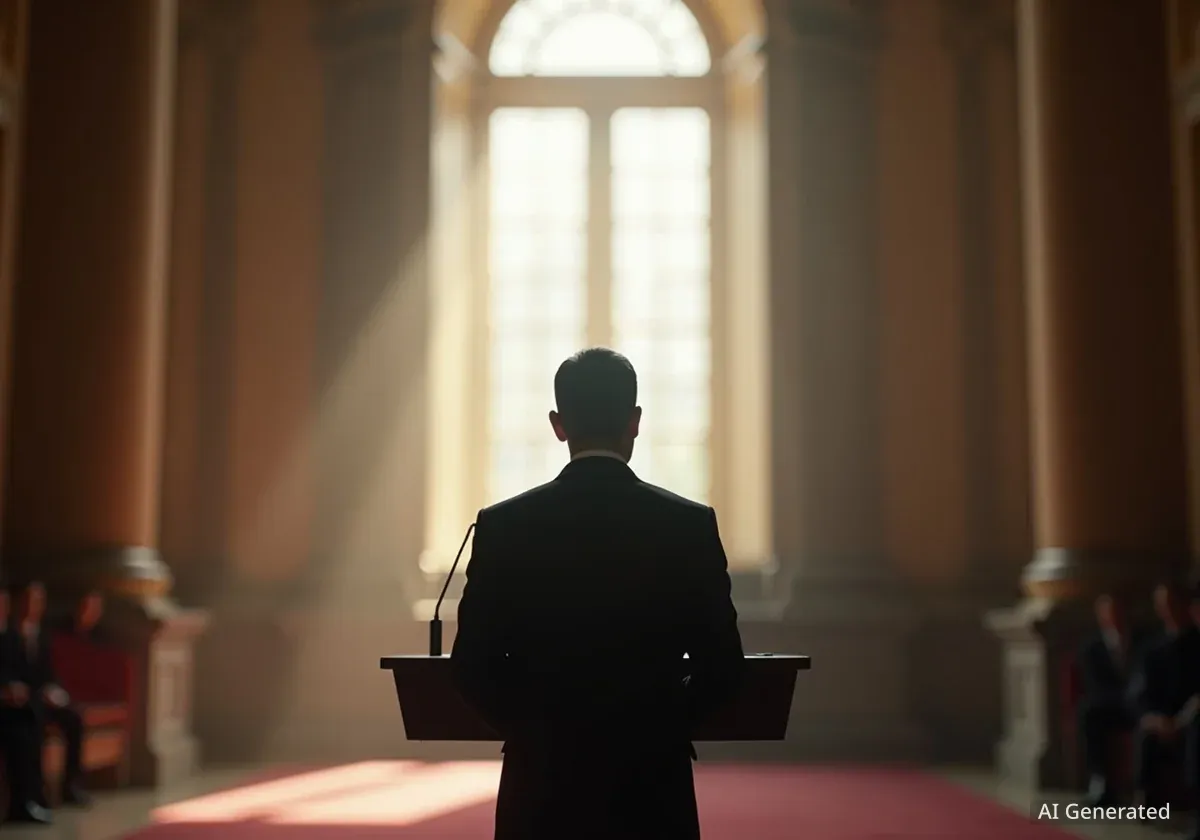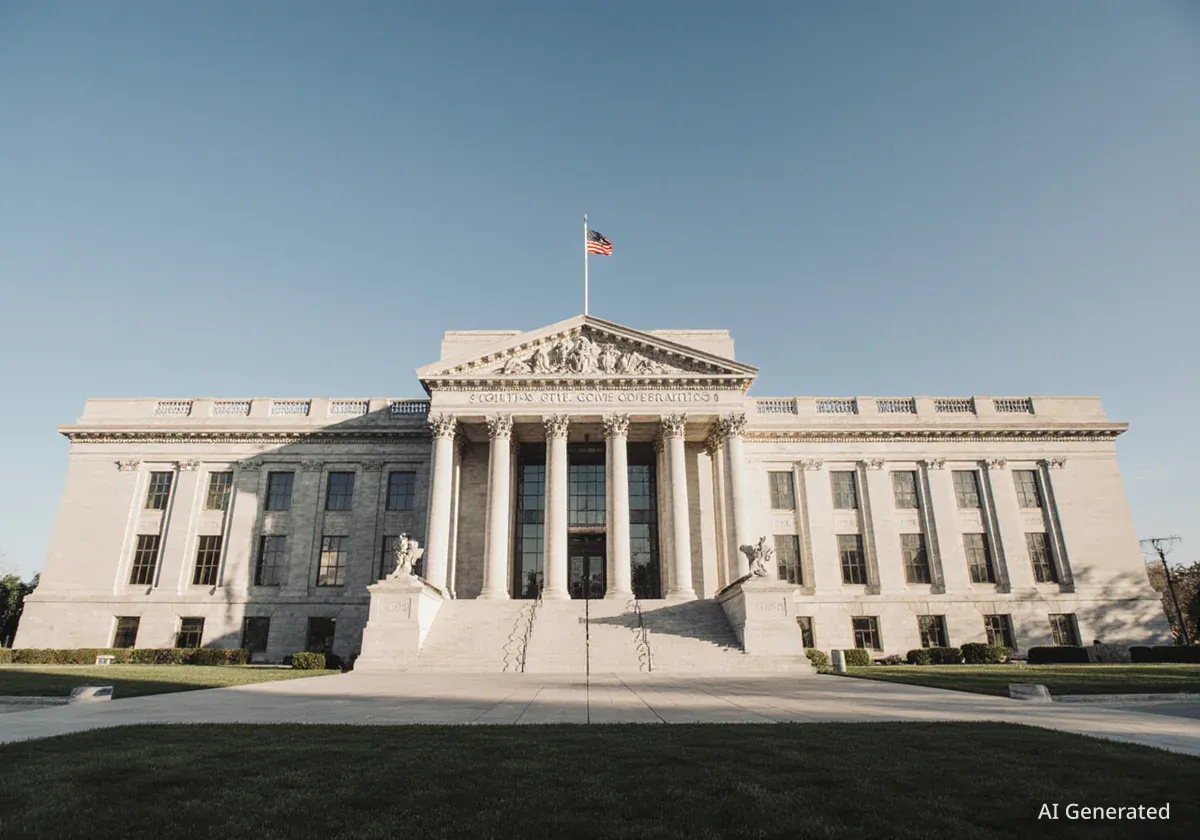Khaled El-Enany, Egypt's former tourism and antiquities minister, is expected to be confirmed as the new head of UNESCO. This appointment comes after he secured overwhelming support from the agency's executive board. However, his nomination has drawn criticism from heritage groups regarding his record in preserving cultural sites in Egypt.
Key Takeaways
- Khaled El-Enany received 55 out of 58 votes from UNESCO's Executive Board.
- He is set to become the first Arab director-general of the UN cultural agency.
- Heritage groups criticize his past record, citing demolitions in Cairo's 'City of the Dead' and development near St Catherine's Monastery.
- The confirmation vote will take place at the general conference in Samarkand, Uzbekistan.
Overwhelming Board Support for El-Enany
Mr. El-Enany, 54, achieved significant backing during last month's executive board vote. He secured 55 votes, surpassing his opponent, Edouard Firmin Matoko of Congo-Brazzaville. This strong endorsement positions him to become the first Arab to lead the United Nations cultural and education agency.
The final confirmation vote will now proceed to the general conference. All 194 member states of UNESCO will participate in this formal vote, which is scheduled to occur in Samarkand, Uzbekistan. If confirmed, Mr. El-Enany will take office in mid-November, succeeding France's Audrey Azoulay.
Fast Fact
Khaled El-Enany served as Egypt's tourism and antiquities minister from 2016 to 2022. He is an Egyptologist and a former museum director.
Concerns Raised by Heritage Organizations
Despite the strong support from the executive board, heritage advocacy groups have voiced serious concerns. The Berlin-based NGO World Heritage Watch specifically urged member countries to reconsider Mr. El-Enany's appointment. They argue that his past actions as minister raise questions about his commitment to preserving cultural sites globally.
A letter, endorsed by over 50 organizations and experts, highlighted specific examples. These include the demolition of sections of Cairo's historic necropolis, known as the 'City of the Dead.' The letter also mentioned tourism development near St Catherine's Monastery in Sinai. Both of these sites hold UNESCO World Heritage status.
"It is irresponsible to entrust someone with such a past with the top job at the organisation responsible for preserving world heritage," the World Heritage Watch group stated.
The 'City of the Dead' Demolitions
Conservationists point to infrastructure projects that accelerated from 2020. These highway and bridge constructions cut through unregistered mausoleums within the 'City of the Dead.' This necropolis, spanning 10 square kilometers (3.9 square miles) on the eastern fringes of Cairo, contains ornate tombs of historical figures, including Mamluk sultans and Islamic scholars.
Many families continue to bury their dead in this area. Heritage advocate Sally Soliman, who has filed lawsuits to halt the demolitions, described the impact as significant. "What happened in the cemeteries is erasing a huge part of Egypt's history," she said.
Egypt's government has defended these developments. Officials maintain that registered monuments were protected. They also state that the infrastructure work is vital for revitalizing tourism and modernizing the capital city.
Context: UNESCO's Role
UNESCO's World Heritage Committee is responsible for identifying, protecting, and preserving cultural and natural heritage around the world considered to be of outstanding value to humanity. Ministers of antiquities play a critical role in managing these sites within their respective countries.
Development Around St Catherine's Monastery
Critics also highlight the 'Great Transfiguration' project initiated in 2021 near St Catherine's Monastery in South Sinai. They argue that this project replaced a smaller visitor center with large, domed buildings. These new structures are seen as clashing with the ancient site's original design and natural setting.
Earlier this year, UNESCO's World Heritage Committee requested an expert mission to assess the situation at this site. This request underscores the ongoing concerns regarding the development's impact on its historical integrity.
Diplomatic Momentum and Future Plans
Despite the controversies, Mr. El-Enany's candidacy has received strong support from Arab and African nations. These countries have long advocated for greater representation within UNESCO's leadership.
Foreign Minister Badr Abdelatty commented on the nomination last month in Paris. "Egypt's candidature is overdue representation," he stated. "We have to lift this historical injustice to Egypt, to the Arabs, to the Muslims, and to the Africans."
Mr. El-Enany has outlined his vision for UNESCO. He has pledged to "build a UNESCO for the people," streamline decision-making processes, and diversify the agency's funding sources. This comes as UNESCO prepares for the withdrawal of U.S. financial contributions at the end of 2026.
A UNESCO spokesperson noted that the election of the director-general is a "sovereign decision of member states." If confirmed, Mr. El-Enany will lead the organization for a four-year term, with the possibility of a second term, following the precedent set by his predecessor.





